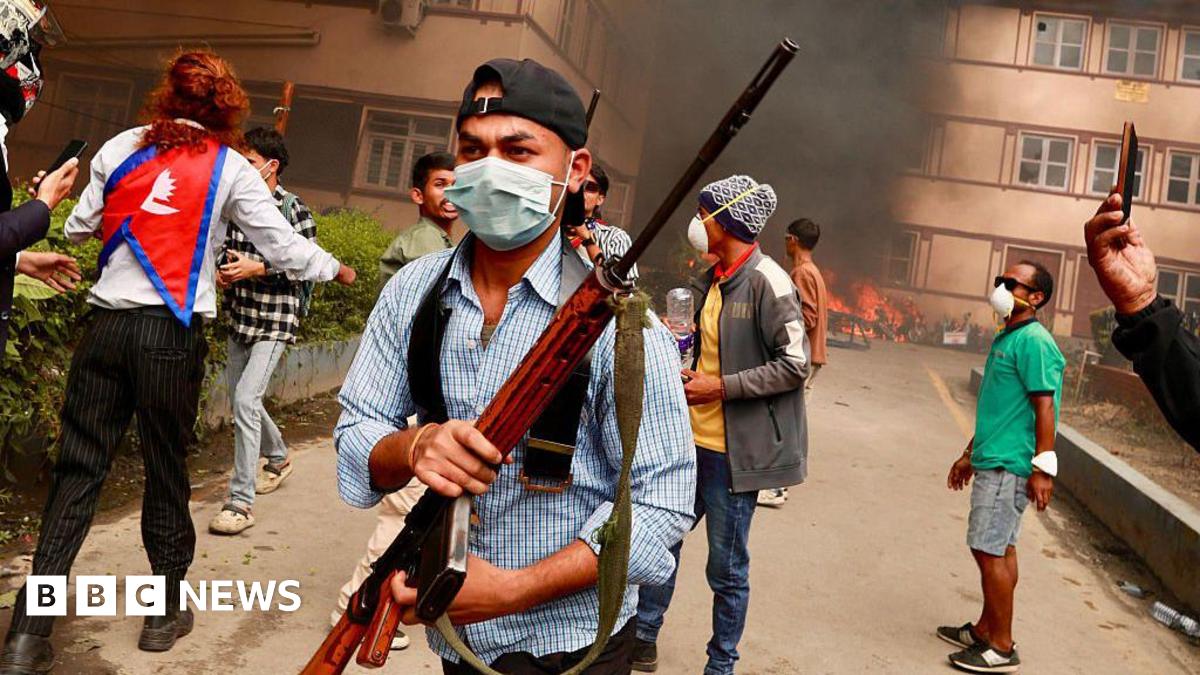The military, which is trying to control a spiralling situation, has invited the Gen Z protesters to engage in peace talks. Student leaders are consolidating a fresh list of demands, one of their representatives told the BBC.
Nationwide curfews are currently in place until Thursday morning and the army has warned of punishment for anyone involved in violence and vandalism. Twenty-seven people have been arrested over violence and lootings and 31 firearms have been found, it added.
There are now military checkpoints across the capital, where officers are checking the IDs of any vehicles passing through. One of the few sounds is their voices blaring through a loudspeaker, calling for people to stay at home: “No unnecessary travel”.
Still, there are some young people out on the streets, carrying bin liners and wearing masks, cleaning up the damage caused by the protests.
Among them is Ksang Lama, 14, who didn’t attend the protests, but is hopeful it will lead to change in Nepal.
“This corruption thing has been in Nepal since a very, very long time, and I think it is high time that the nation needs to change,” she says. “I really hope that it can bring something positive to our country.”
Another supporter of change – 24-year-old Parash Pratap Hamal, who took part in Tuesday’s demonstrations – says he is now cleaning up because they had caused “a lot of pollution”.
He believes Nepal “needs independent political figures” – he cites Kathmandu mayor Balendra Shah as someone who would make a good leader for the country.

